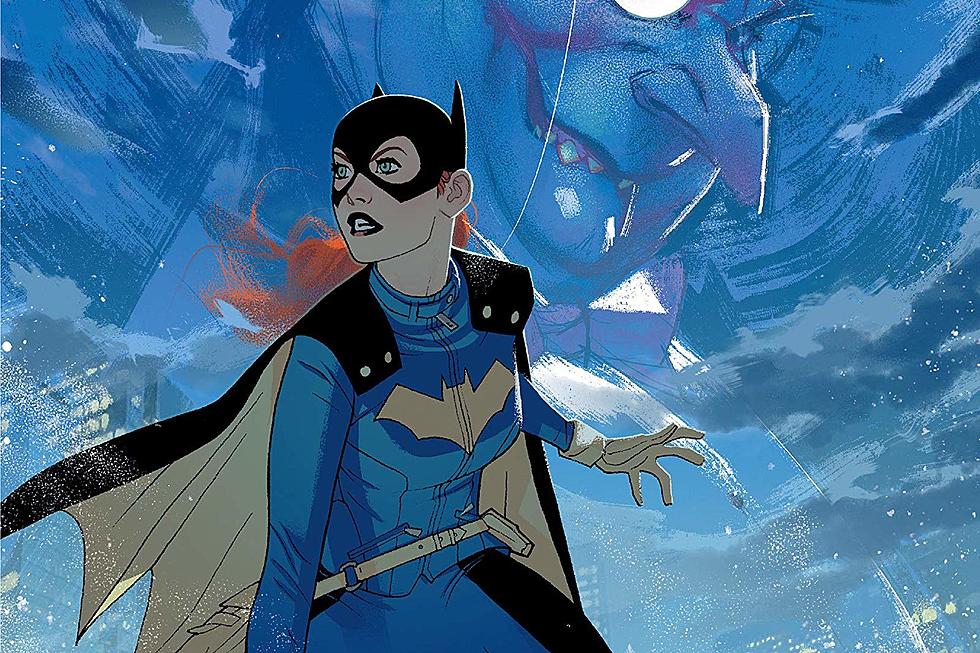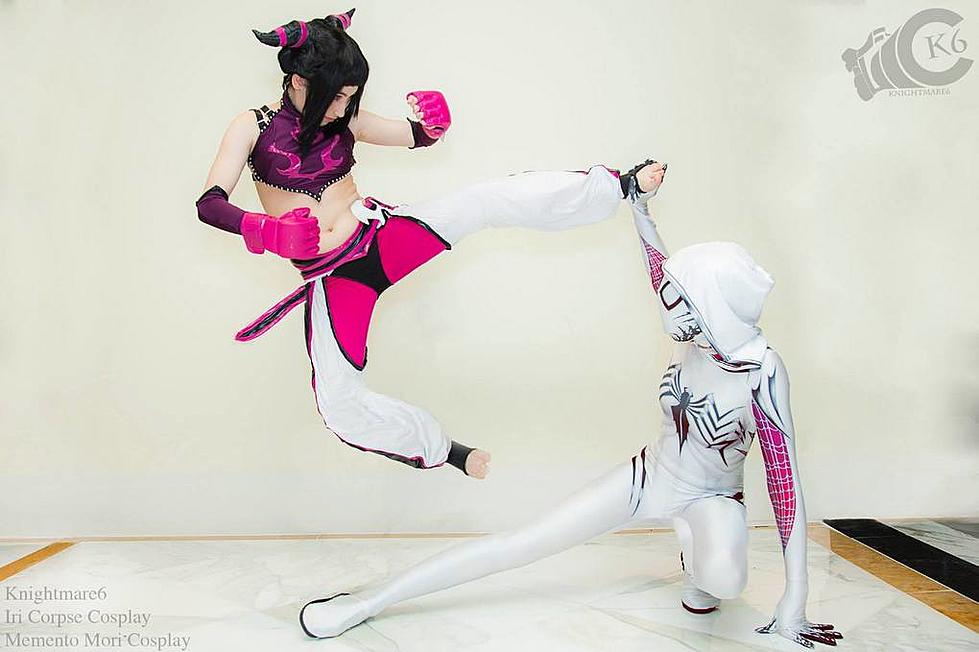
On Imperfect Allies, And Why ‘Batgirl’ Still Deserves Our Support
On Monday I reported on the controversy surrounding the most recent issue of Batgirl, issue #37, and the hurt it caused readers with the presentation of a character who played into transphobic tropes. On Tuesday we ran a piece by activist J. Skyler that further placed the story in the broader cultural context of transphobic media. In both cases, our hope was to showcase and respect the opinions of the critics and put their voices ahead of those of the authors or any defensive fans. These are critics who are often marginalized and shouted down; what they had to say about this controversy is important and must be recognized and listened to.
As I also mentioned on Monday, Batgirl is a book at the vanguard of a movement towards genre stories for young, progressive, predominantly female readers -- a more modern and diverse readership than the one traditionally associated with the superhero genre. Because of this, and because the creators apologized for their mistakes, I think Batgirl still deserves support. Issue #37 damaged the book's image and reputation, but it remains one of the best and most important superhero books being published today.
The Batgirl creative team of Cameron Stewart, Brenden Fletcher and Babs Tarr did not chance into this movement for a new audience, nor did they opportunistically seize on the change in the market; these creators believe in the work they're doing. I know Stewart and Fletcher socially (I've never met Tarr), and I believe that they are committed to their audience. They've convinced me of their intentions; they still have a lot of work to do to convince that audience.
Because of Batgirl #37, they now have more work to do than ever. As is so often the case with progressive allies, when they fall, they fall hard -- and it happens all the time, because those of us who want to support progressive causes don't always know how much we don't know. We don't share the experiences of all the people we want to support, and that leaves gaps in our education that we might only become aware of when we make mistakes.
I am a progressive -- and a liberal, and a feminist -- and I am imperfect. I have said and written things in the past that I would not stand behind now. I'm sensitive to things now that I wasn't sensitive to in the past. I will probably say things in the future that I'll later have cause to regret, and I hope I have the good grace to apologize and learn from those mistakes.
The condition of being politically progressive is, I think, one of constant learning and reevaluating. Conservatives get to hold to established orthodoxies; progressives reshape their views based on the belief that we'll understand more tomorrow than we do today about poverty, violence, injustice, prejudice, inequality, and intersectionality.
We are not always good at admitting our mistakes, but we must get better at it. Making mistakes and learning from them is fundamental to the philosophy of progress, of being better tomorrow.
Because of that, I think our willingness to accept these mistakes in others is also fundamental. Progressives can be harsh towards one other. We're often skeptical of each other's motives and understanding. We're often hard-hearted towards people who are still learning things that we've already learned, sometimes as a way to protect ourselves from the harm that can come from ignorance. Crucially, we often fail to see in others the truth that we recognize in ourselves; that we feel our failures deeply.
People who cares about progress will often expose themselves to criticism precisely because they try and fail. People who don't care can often coast by, and because they don't try, they're invisible among thousands of other oblivious souls. Even if they were criticized, they might not care enough to listen.
The people we can rely on to listen are the ones who do care, who do try, and do fail.
The critics of Batgirl #37 were fair, reasonable, and appropriately skeptical towards the creative team. But I want to acknowledge that the creative team have tried to be good allies, and that they feel their failure very deeply. Their apology shows real remorse and a willingness to learn.
I wouldn't be writing this piece now if not for that apology. It was an absolute requirement before moving forward. The authors demonstrated their understanding that the story caused real harm. They apologized without reservation. They thanked their critics for calling them out. They promised to do better. This was a good faith apology that showed that Batgirl #37 was a product of ignorance, not malice.
Mey, the writer who made some of the initial criticisms of the issue on Autostraddle, responded to the apology by saying, "I do think that the creative team's apology was sincerely heartfelt and that they earnestly want to do better and make things better. ... I'm thankful that Batgirl is in their hands [and] I look forward to reading more. They've shown that they're real allies by responding like this." (Mey's acceptance of the apology should not distract from the importance of her criticisms.)
There will be readers who won't accept the apology, and it's not my place to evaluate that response, but I respect it. Even those who do accept the apology are under no obligation to support the book. Forgiveness doesn't come with a subscription.
But I want to advocate for the continued support of Batgirl not out of forgiveness, but out of hope. In failing and apologizing, I think the authors placed themselves further along the path towards understanding, and ahead of many of their peers. I think they demonstrated that they can make Batgirl the progressive, diverse, and inclusive book that they want it to be, because they see where they failed and they want to do better.
Trans culture and politics have reached a tipping point where advocates are more visible than before, the media is more receptive than before, but the general deficit in awareness and sensitivity is almost as high as before. I fear that's going to mean a lot more incidents like this one. Gay culture and politics reached a similar tipping point about twenty years ago. The road to where we are today was paved with mistakes, misunderstandings, and grave misjudgments. I probably lost a day of my life to conversations with people who saw no harm in using "gay" as a pejorative.
Those of us who advocate for progressive causes can use incidents like the controversy surrounding Batgirl #37 as an opportunity for growth and learning. I know that I don't know enough about the struggles faced by the trans community, and I know that I've made mistakes in my own writing. I know that I need to take responsibility for the gaps in my knowledge, and that I need to listen to trans people, and seek out their voices. I'm hopeful that the Batgirl creative team have achieved the same understanding. I'm curious to see how they apply what they've learned.
Being an ally is not an identity; it's a process. It isn't easy, or painless. Allies have an obligation to learn, to seek out understanding; to follow the examples of the people whose experiences we want to respect; to stand back and listen to their voices.
Along the way we will make mistakes, and it falls on all of us to understand that about each other. We are all flawed. We are all imperfect. There is no such thing as a perfect ally.
So the creators of Batgirl are imperfect allies. They acknowledge that, and they have apologized and promised to improve. I believe that they can, and I believe that they will, and that Batgirl can still be a force for progressive storytelling in genre comics. On that basis, I will still support Batgirl.
More From ComicsAlliance





![DC Unveils Covers And Solicitations For June’s Bat-Books [Exclusive]](http://townsquare.media/site/622/files/2017/03/Batbooks.png?w=980&q=75)


![MVP: Who Is The Greatest Birds Of Prey Member? [Poll]](http://townsquare.media/site/622/files/2017/02/BOP-Votes.png?w=980&q=75)
